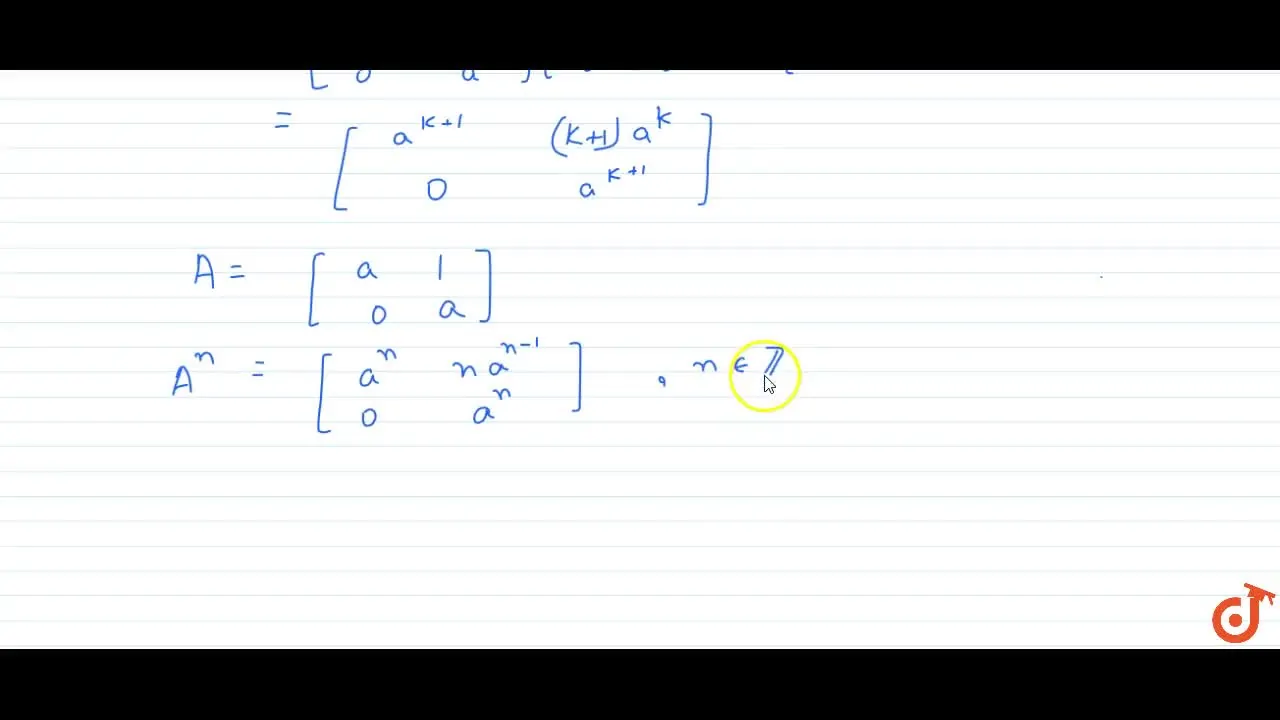If a is a non-zero real or complex number. Use the principle of mathematical induction to prove that: IfA=[a10a],thenAn=[annan−10an]for every positive integer n.
Step by step video & image solution for If a is a non-zero real or complex number. Use the principle of mathematical induction to prove that: IfA=[[a,1],[ 0,a]],t h e nA^n=[[a^n,n a^(n-1)],[0,a^n]] for every positive integer n. by Maths experts to help you in doubts & scoring excellent marks in Class 12 exams.
Similar Questions
If a is a non-zero real or complex number. Use the principle of mathematical induction to prove that: IfA=[a10a],thenAn=[annan−10an]for every positive integer n.
View SolutionIf a is a non-zero real or complex number. Use the principle of mathematical induction to prove that: If A=[a10a] , then An=[a∩an−10an] for every positive integer n.
View SolutionProve the following by principle of mathematical induction If A=[3−41−1], then An=[1+2n−4nn1−2n] for every positive integer n
View SolutionUsing the principle of mathematical induction, prove that n<2n for all n∈N
View SolutionIf A=[ab01] , prove that An=[anb(an−1a−1)01] for every positive integer n .
View SolutionBy using principle of mathematical induction, prove that 2+4+6+….2n=n(n+1), n∈N
View SolutionProve by the principle of mathematical induction that n<2nfor alln∈N.
View SolutionUsing the principle of mathematical induction, prove that (n2+n) is seven for all n∈N.
View SolutionProve by using principle of mathematical induction : 2n<3n,n∈N
View SolutionProve by using the principle of mathemtical induction: 1+2+3+…+n =(n(n+1))/2
View Solution


